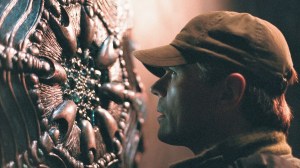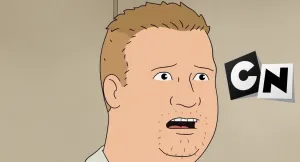2024 is proving to be a big year for DC’s Dreamer. Last year, the eagerly anticipated graphic novel, and then, soon after that, DC announced that the character would be taking up a major role on an even large stage with the arrival of a new Suicide Squad ongoing series, , which will see Dreamer/Nia Nal front and center of a new Task Force X. But it’s not just a big year for Dreamer; both Bad Dream and Suicide Squad: Dream Team are written by Nicole Maines, who brought Nia Nal to life on The CW’s Supergirl, blazing a trail as the first transgender superhero on television before bringing the character to the pages of DC.
Videos by ComicBook.com
Ahead of the arrival of Suicide Squad: Dream Team #1 on March 12th and Bad Dream: A Dreamer Story on April 2nd, ComicBook.com spoke with Maines about the next chapter in Dreamer’s journey as well as her own in taking the character from screen to page.
ComicBook.com: The last time we spoke it was for Nia’s Lazarus Planet experience and now she’s tangled up with the Suicide Squad. This feels like a huge evolution for the character. Where is Nia as we walk into this much bigger stage?
Nicole Maines: This whole things sort of kicked off during the Beast World event when she and Jon Kent teamed up to evacuate the alien district of Metropolis and she helped bring them all back to Parthas, her hometown which is a secret alien refugee site where they would be safe and we have the Blue Earth movement going around with all their anti-alien crap, so she was like, let’s give them a safe place to evacuate to. And during the course of those events, Amanda Waller became privy to Dreamer and to Parthas and is now using that as a bargaining chip. So, as we open on the Suicide Squad, we find Dreamer, who has been running missions for Amanda and growing tired of the lesser of two evils narrative that Amanda Waller subscribes to.
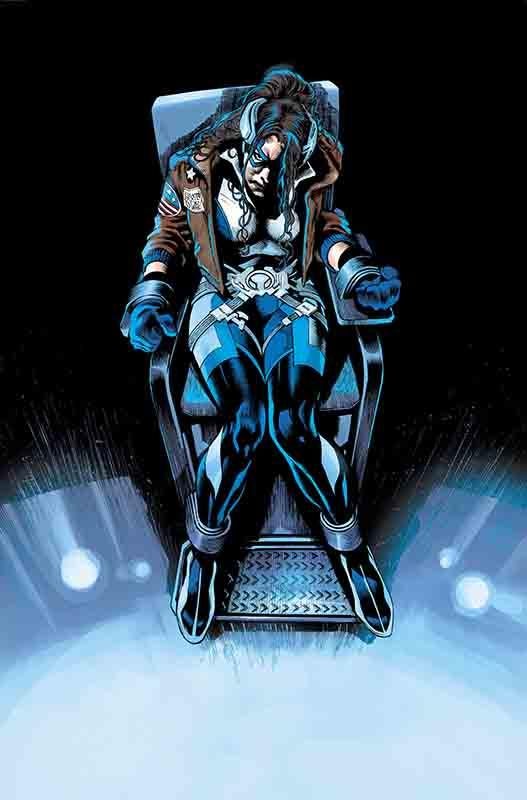
There’s a moment in the issue that jumps out to me as cementing the idea that we’re at a turning point for Dreamer — it’s the line ‘do you really think your time as a hero is best spent playing Whack a Mole”. What’s kind of going on in Dreamer’s head at this point because this really does feel like it is do or die.
It’s difficult for her because, and you put it perfectly, on this much bigger stage. She is still this inexperienced 18-year-old girl who never thought she was going to have these powers, who doesn’t really know how to use these powers, and she’s doing her best to live up to the legacy set by her dearly departed mother. But she doesn’t know how and so she’s doing the best that she can and given the information that she has and what she sees in her visions, she’s trying to use her best judgment and she’s trying to do the right thing and protect the most people. It’s a turning point for the character because that is sort of Dreamer’s whole mission and seeing the future, it’s, you know, go after the big target, don’t, like, little hero of the week or whatever. If you see what’s coming down the pipe you have a responsibility to stop it. It’s very see something, say something but yeah. Amanda Waller.
You’re getting to take on some truly iconic DC characters in this, Waller, Harley Quinn.
A lot of people I’ve seen online have been like, ‘oh, it’s gonna be a Harley Quinn story’ or they’re like, ‘oh, it’s a backdoor Dreamer story’ and I’m like, wrong. Amanda Waller is the main character here, make no mistake. I’m having a blast writing Amanda. She’s awesome.
How do you prepare for that? Amanda Waller is a really layered character when you really dig into her. How do you even approach this?
I think the most important part for me was making sure especially as we’re moving into this new territory with her where she’s really becoming this major villain within the DC Universe, I wanted to make sure that we allotted some amount of time to not reestablishing or reaffirming, but I think reminding people that she’s just a human woman who has had a life. She’s loved and she’s lost. Everything she does comes from a place of hurt and a place of fear and desperate desire for control. I think the thing that interested me the most about her when I first started thinking about this were the similarities between her and Dreamer. They’re both women who, through Amanda’s position and through Dreamer’s powers, have both seen the world come very close to ending a lot of times. And while Dreamer is in a position where she’s like apologizing for her power, and she’s trying not to abuse it, Amanda has no problem being like ‘yeah, I have put myself in a position where I have a tremendous amount of power. I would be stupid not to abuse it.’
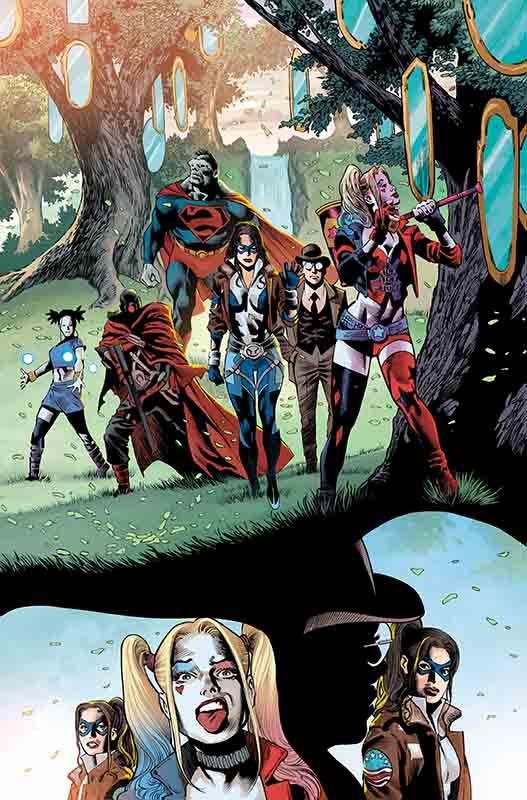
In the issue you actually talk about that. Waller calls out how similar they are and Dreamer is like ‘no, we’re not”. I thought that was interesting. We’re getting to see two sides of very much the same coin.
Accurate. One hundred percent they are. And that was intentional to make these two women feel like two sides of the same coin because a whole arc for Dreamer over this series is going to be ‘do I subscribe to Amanda Waller’s line of thinking to defeat this person to save the future or do I have to adopt this sort of greater good, break a few eggs to make an omelet mentality. She’s kind of been stumbling around in this kind of idealistic young way and I think the nature of her powers and the situation she finds herself in is kind of demanding, like ‘hey girl, you need to reevaluate some stuff and you need to decide what you want to do. Is your definition of being a hero going to save the day or does that need to change?’ And that’s true for everybody on the Squad.
It’s going to be a wild ride.
I’m excited about this series because it really is looking at what is a hero. How do you act as a hero within the confines of something like the Suicide Squad? We’re seeing that with Harley, we’re seeing that with Deadeye, we’re seeing that with Dreamer, Bizarro, less with Clock King. And Black Alice has reached a point post Lazarus Planet that is complete nihilism so it’s sort of we have the full range of how do you be a hero. Do you even want to be a hero? Is there even a point and you know, sort of weighing the consequences of going against an oppressive force.
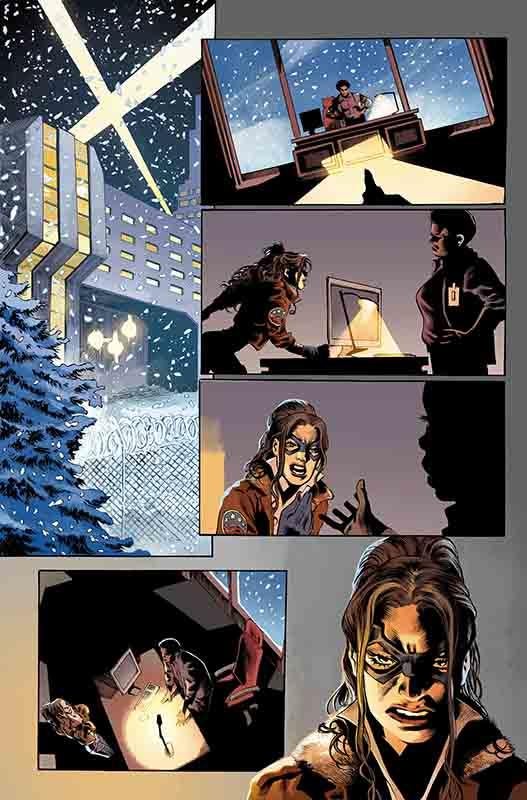
This is juxtaposed, for me, against Bad Dream. You’ve promised that we would get more of Dreamer’s backstory, even when you were on Supergirl and brought her to life. Now we get that more. What’s it been like for you to finally get here?
I started the process of the graphic novel in 2020. This was my pandemic baby. Bad Dream is so special because that was the passion project that was so much like blood, sweat and tears went into that and the writing.
I started, I went in with a plan and somewhere around Act Two, the entire thing fell apart and it just became a situation of I’m just going to write the thing as it comes. Dreamer, especially on the show, we didn’t really get to dig into her backstory and now with the comics not being tied to the Arrowverse, I was free to kind of go in whatever direction I wanted. I think the thing that I was most excited about was getting to decide first of all what Parthas looked like, what that felt like and also Naltor. What rules do they have? What was that like for the people who defended it? With her mother, giving her a little bit more of a backstory and a history aside from oh yes, she very wise. She’s been through things. She’s broken some rules and it is not without consequence that she’s here on Earth. It was just really fun to kind of get to flesh out what Dreamer’s world looks like.
These stories are kind of leaning heavily on each other. Not a spoiler because her mother’s death happened on Supergirl. But she has these flashbacks to all the failures in her life that are her fault and that’s the thing about Bad Dream. We can say oh poor baby, sweetie, oh this wasn’t your fault. It 100 percent was. We get why she did the things that she did, but it is her fault her mother is dead. And that’s just something she has to live with and something she has to try to atone for so now, finding herself on Suicide Squad is the worst-case scenario.
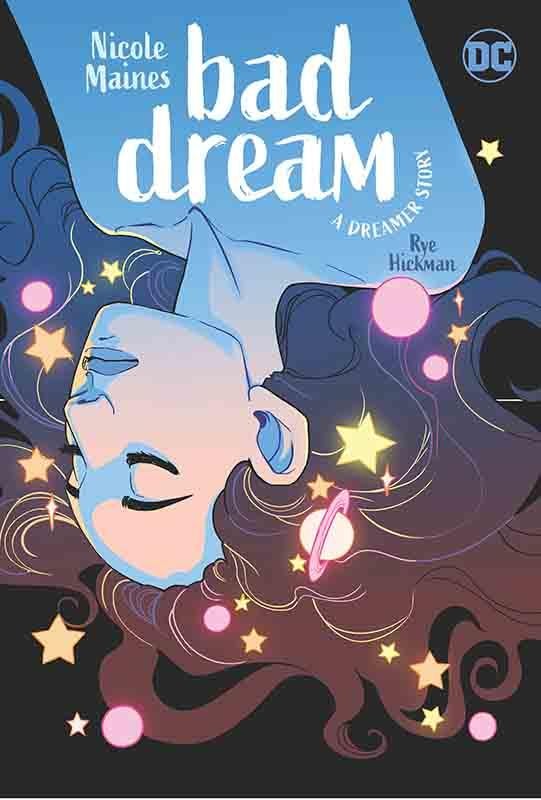
What I love about Bad Dream is that we’re not getting like on Supergirl where we meet her and she gets these powers as an adult. It’s a completely different type of character arc to develop these powers as a teenager and experience a trauma and then still be a teenager trying to apply these powers and healing.
She has the training wheels on, she’s like trying to do a triathlon on a training bike and everyone’s faster and she’s like ‘I’m just afraid”. And I think that’s the thing people have to remember as the stories are unfolding. She’s doing her best to put on the hero front and trying to remain in control of the situation. This is scary stuff for anybody, especially a teenager. And she so desperately wants to do the right thing and is right away confronted with oh no, I messed up and I enabled something terrible and it just gets worse. She just kind of hits every single thing on the way down. But it transforms her into what Paul Kaminski and I were talking about when we first started talking about this. He was like, ‘I really want to see Dreamer as this Sarah Connor character.’ And that’s kind of what she becomes here.
You’ve had this very unique experience where you have gotten to take Dreamer and shepherd this character through two versions and really create her whole cloth. What is this like for you? If you went back to talk to the Nicole who was just cast as Dreamer, what would you say to her?
First of all, I’d be like ‘girl, you have no idea how big a part of your life this character becomes.’ When I got cast, I was 20 and came at a point in my life when there was so much, like, I was in such a transition period that I sort of came of age along with this character. And I think she and I kind of became entwined in a way that is very profound and hard for me to describe.
This character just means a lot to a lot of people. I just want to see her do cool stuff. And I’m excited to see her in the comics. It just keeps getting better and better and it’s just like something that I never would have imagined and she has grown into this character that is so much bigger than I thought likely. I’m just really grateful that I’ve had the opportunity to work with so many amazing people who have said yes.
What do you hope people take away from both Bad Dream and Suicide Squad: Dream Team?
I want people to come away with either a new love for Dreamer or a reinvigorated love for Dreamer. I just want people to come away with more of a demand for this character. I want people to be like, ‘yes, we love this. We love her, we love what she does. We love what she can do. We want to see her go more places.’ I want to see what happens next in the story of Dreamer. It’s interesting that Bad Dream and Suicide Squad are coming out at the same time because Bad Dream is like her start of everything and her origin and Suicide Squad is where we are now and in stark contrast.
Suicide Squad: Dream Team #1 arrives on March 12th. Bad Dream: A Dreamer Story arrives April 2nd.
This interview has been edited for length and clarity.





